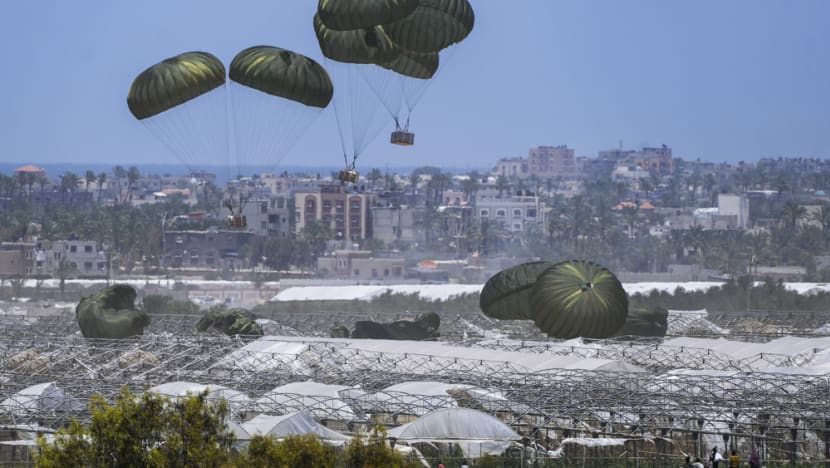World
UNRWA Chief Warns Airdrops Will Not Alleviate Gaza’s Food Crisis

The head of the United Nations Relief and Works Agency (UNRWA), Philippe Lazzarini, stated on July 26, 2023, that planned airdrops of humanitarian aid into the Gaza Strip will not sufficiently address the severe food shortages that have persisted for months. Despite the intention behind these airdrops, Lazzarini emphasized that they represent only a partial solution to a complex crisis affecting the region.
In his remarks, Lazzarini highlighted that the ongoing humanitarian crisis in Gaza has been exacerbated by restrictions that have left many residents struggling to meet their basic needs. The situation is dire, with reports indicating that a significant portion of the population is facing acute food insecurity. The planned airdrops, while a necessary step, will not replace the need for consistent and comprehensive aid delivery.
Gaza has been under a blockade for years, which has severely limited the flow of goods and services into the territory. This has had a direct impact on food supplies, leading to increased prices and dwindling availability of essential items. Lazzarini’s comments come as the international community continues to search for effective ways to alleviate the suffering of the Palestinian people.
UNRWA has been at the forefront of providing assistance to Palestinian refugees, but the agency has faced significant challenges due to funding shortages. Lazzarini urged donors to step up their contributions, warning that without sustained support, the situation in Gaza could deteriorate further. “We are at a critical juncture,” he stated, underscoring the urgency of the matter.
International efforts to deliver aid to Gaza must go beyond short-term measures like airdrops. Lazzarini called for a coordinated response that includes the lifting of restrictions on movement and access, which he argues are essential for rebuilding livelihoods and restoring stability in the region.
The humanitarian crisis in Gaza is not just a local issue; it has implications for regional stability and international relations. The ongoing conflict has drawn attention from various global actors, each advocating for different solutions to the situation. As discussions continue, the voices of those affected by the crisis remain paramount.
In conclusion, while airdrops are a commendable initiative, they cannot substitute for comprehensive humanitarian efforts. The international community must engage in a more robust dialogue to find sustainable solutions to the challenges facing Gaza. Without immediate action, the risk of further escalation in humanitarian needs remains high.
-

 World5 months ago
World5 months agoSouth Korea’s Foreign Minister Cho Hyun to Visit China This Week
-

 Business5 months ago
Business5 months agoStarling Bank Plans Secondary Share Sale, Targeting $5.4 Billion Valuation
-

 Top Stories5 months ago
Top Stories5 months agoMunsang College Celebrates 100 Years with Grand Ceremony
-

 World5 months ago
World5 months agoPAS Aims to Expand Parliamentary Influence in Upcoming Election
-

 Business7 months ago
Business7 months agoKenvue Dismisses CEO Thibaut Mongon as Strategic Review Advances
-

 Lifestyle6 months ago
Lifestyle6 months agoHumanism Camp Engages 250 Youths in Summer Fest 2025
-

 Sports6 months ago
Sports6 months agoDe Minaur Triumphs at Washington Open After Thrilling Comeback
-

 Sports7 months ago
Sports7 months agoTupou and Daugunu Join First Nations Squad for Lions Clash
-

 Top Stories7 months ago
Top Stories7 months agoColombian Senator Miguel Uribe Shows Signs of Recovery After Attack
-

 World7 months ago
World7 months agoASEAN Gears Up for Historic Joint Meeting of Foreign and Economic Ministers
-

 Health6 months ago
Health6 months agoNew Study Challenges Assumptions About Aging and Inflammation
-

 Business7 months ago
Business7 months agoOil Prices Surge Following New EU Sanctions on Russia









